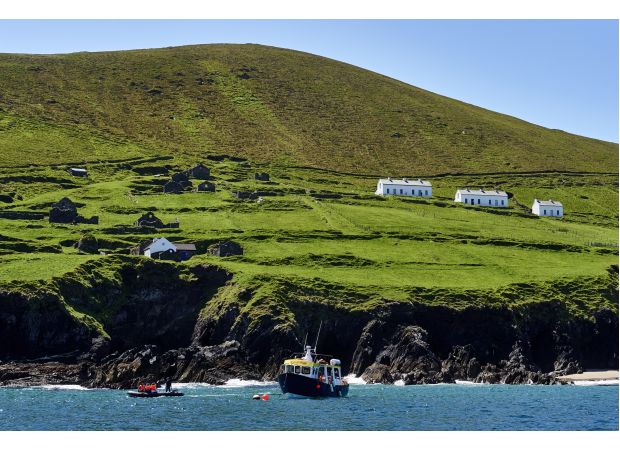Possible paraphrase: Imagine operating a coffee shop on an uninhabited island.
A couple is needed to manage a remote island.

A couple is needed to manage a remote island.
1 Views


